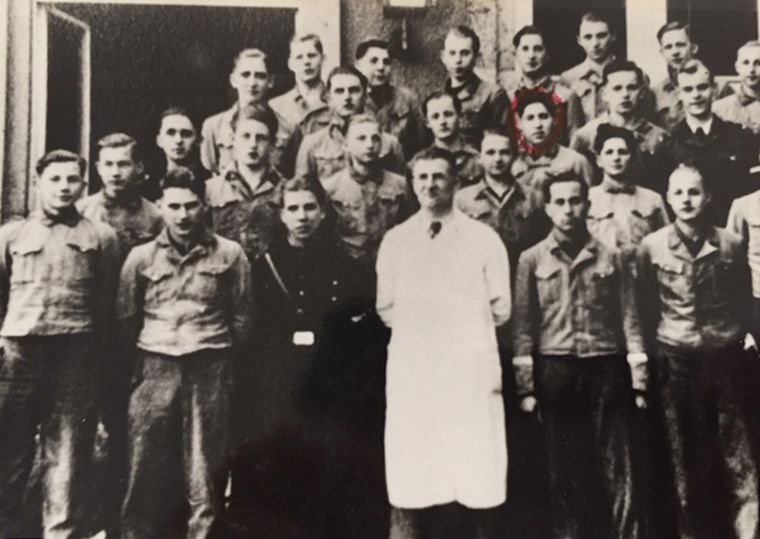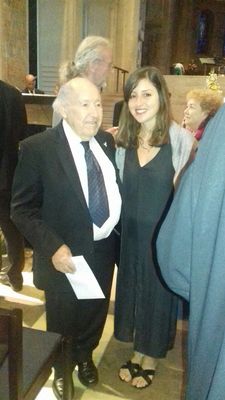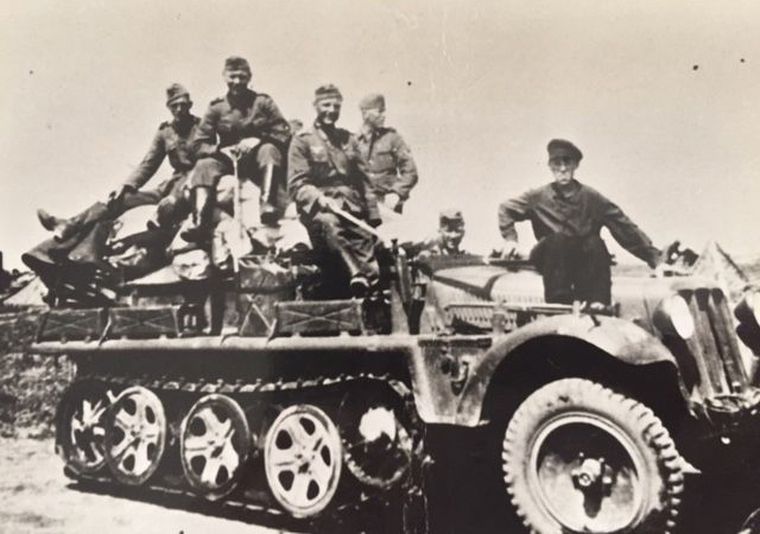SOLOMON PEREL, 94, lives in Israel—a country where the Holocaust stories have been kept alive everywhere, from museums to textbooks. But, he suppressed his own for years, only daring to open up after he had a bypass surgery in his 60s. He had led a secret life during the Holocaust years, pretending to be a Nazi, in constant fear of being discovered as a Jew. Later, in Israel, he feared that his Nazi associations would not be understood.
“Yes, I have had a schizophrenic existence,” says Perel. “But today, I am at peace with all my selves.” He had just returned from Poland, after visiting his father’s grave in the Lodz Ghetto.
Perel wrote his life story in his autobiography, I Was Hitler Youth Salomon, which was adapted into a film, Europa Europa, in 1990. Yet, he is not tired of telling the story again, reliving every tiny detail of those terrible times.
The first tragedy in his life came when he was ten. Hitler had been in power for two years, but Perel’s life had not been touched. He spent his days playing and studying with the other German boys, having no idea that he was different, till one day he was expelled from school for being a Jew.
His family decided to move to Poland. But, on September 1, 1939, Germany invaded Poland, and the Jews were moved to ghettos. “There were 2,50,000 Jews in the Lodz Ghetto,” says Perel. “I hated it. I could not even speak Polish.” He was too young to realise that there were bigger problems. His parents, though, did. They decided to send Perel and his brother Issac, who was 30, to East Poland, which was then under the Soviet control.
“I recall the last words of my parents,” says Perel. “My father told me never to forget that I was a Jew. God would protect me, he sincerely believed. My mother simply said, ‘go, you have to live’.” At that moment, Perel neither realised that those would be their last words to him nor that they would shape his future dilemmas and schizophrenic existence.
Issac put his brother in an orphanage in Minsk (now in Belarus) and pushed off to Latvia. The orphanage was a short-lived refuge as the Germans captured the city two years later. “The whole town of Minsk was rounded up,” Perel recalls. “We were queued up for classification. I saw them identifying Jews and taking them to a forest to shoot them. My line moved slowly. I was terrified, my mind was not working, but my instinct was. I dug a hole into the snow with my heels, unobtrusively buried my documents and [then] shuffled on.”
Soon, it was his turn. “Someone said, ‘hands up’. I raised my hands,” he says. “A German soldier asked me who I was.... I wanted to live, so I said, I was German.” Miraculously, they believed him. The men ahead of him had to drop their pants to show whether they were circumcised or not. But, no one asked him.
They asked him for his documents, and he lied that they were destroyed by an artillery rocket. “Lying was my only weapon,” says Perel. “It is very useful at times, especially when the truth wants to kill you.”
Perel adds that the right to life is above every religion. He no longer believes in God, because “God and Auschwitz could not have existed together. In Auschwitz, there was no God.”
Perel soon found himself in Nazi uniform and took the name, Josef. The Germans had affectionately shortened it to “Jupp”. His old friends still call him Jupp. He knew German and Russian, so they used him as interpreter during the trial of Stalin’s son, Yakov, in Smolensk.
“I became a split personality—a Nazi by day and a Jew by night,” he says. “Some loved me a little too much. There was an army doctor who would fondle me. But, I lived in mortal fear of being discovered.” That day came soon enough. He avoided bathing with other boys and was stealing into the bathhouse one summer afternoon when the doctor pounced on him. “I had no clothes on. He knew my secret. He said, ‘Jupp, you are a Jew’, and I began crying. That man had enough reason to kill me. But, he told me to wipe my tears, saying, there is another Germany apart from this [Nazi one] and went away.”
His commanding officer also had a fatherly affection for him. So when the German blitz failed, he sent Perel to a Hitler Youth boarding school in Germany, away from the war, where he continued his dual identity for three and a half years. Perel makes the traumatic experiences of his life sound funny in retelling. He remembers a professor who taught how to identify a Jew. “He pulled me out as a case study and I trembled as he measured my skull. Then he said, ‘Look at this boy. He is the perfect example of a Baltic Aryan.’ I could not say thank you, neither could I tell him that if he knew the truth, his theory would crumble,” says Perel, chuckling. “After the war, I met the professor. When I told him his theory was wrong—that I was a pure Jew—he was stunned. Then recovering himself, he said he was only trying to protect me.”
The lonely teenager missed his family, and one Christmas break, took the risk of returning to Lodz, only to realise his parents had perished. He returned to his new “home”.
The war was ending when he was drafted. He was sent to guard a bridge at Brunswick. There he was taken captive by the US army. “It was another irony,” he says. “A Jewish boy in a Nazi uniform in American captivity. I could have told them the truth, but it was daytime, and I was thinking like my Nazi self. The Americans released us all two days later, as they considered us underage. But, I had to sign a document saying I would not take arms against the Americans. As if I would.”
He later reunited with his brother, married by then, and they moved to Israel, where he joined the Israel independence war. After the war, Perel married, ran a business of making zippers and led an ordinary life, keeping his extraordinary past life a secret for a long time.
Today, he is not ashamed of his past. He is in regular touch with the other Nazi boys of his hostel, all old men like him. Not everyone in Israel can understand this, but he does not care any more.
Leaving Germany, he left behind his sweetheart, Leni—a Nazi girl. “She wanted to marry me and has not forgiven me for telling her it was too soon for a Jew to marry a Nazi,” he says. “Leni is now a beautiful grandmother who lives in Canada. We meet every year.” Does his wife know about Leni? “Of course. So does her husband.”
Perel loves meeting people and sharing his stories. He is constantly on his smartphone, either chatting with someone or emailing. Sometimes, however, his audience astonishes him. “A little girl once asked me, was I a happy man,” he says. “I thought for long, then realised if I tell her the truth—that I am not so happy—she might be shattered.” Yes, each one of his self had its own demons. His ancient body thus carries several of them. “But,” he says, “my greatest happiness is that I listened to my mother. And, I lived.”





